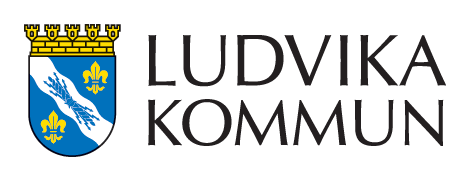How a municipality works
Ludvika is one of 290 municipalities in Sweden, and is responsible for a large portion of local community services like schools, social services and elderly care. The municipalities of Sweden (kommun) are the local government entities.
Each municipality is led by politicians (sometimes called elected representatives) who have been voted for by citizens. This means that we, as citizens, have good opportunities to influence and control how the municipality is run.
A legislative municipal assembly (kommunfullmäktige) is elected at municipal elections which are held every four years. The assembly in turn appoints a municipal executive committee (kommunstyrelse) from its members. The executive committee is headed by its chairman (kommunstyrelsens ordförande), who is often referred to as municipal commissioner or mayor (kommunalråd). Ludvika has a number of political committees which are responsible for different activities.
The highest authority is the municipal assembly (kommunfullmäktige) that amongst other things, decide on budget, taxes, other charges and the rate of tax that residents shall pay to the municipality.
The municipality´s organization and activities are regulated under municipal laws which are the same for every municipality and county council. The municipality is also regulated by special laws such as social services legislation, school legislation, and planning and building regulations.
Municipality and policy
The municipality´s activities are directed primarily to everyone who lives in Ludvika. The municipality provides a range of public services for residents which include schools, child and senior care, culture and leisure, local traffic, road maintenance, water and sewage, street cleaning and refuse collection. The municipality is also responsible for continuing to develop Ludvika into a more attractive area for residents and visitors.
The municipality takes care of most things that are of general interest for its residents, with the exception of activities that are looked after by the State (e.g. police, prisons, employment office, national and county courts), and the County Council (Region Dalarna) which covers health and dental care etcetera.
Circa 2,500 people work for the municipality of Ludvika, at an annual cost of over 1 billion Swedish kronor. Revenue is generated from municipal tax, charges, and government grants. Local taxes are presently set at 22.31 kronor. This means that residents in the municipality pay 22.31 kronor tax for every 100 kronor earned.
Here´s how you can influence
In Sweden, municipal elections are held every four years, using the same electoral system as the Swedish national parliament (Riksdag). Since 1976 it has not been necessary to be a Swedish citizen to vote in municipal elections, but you must live in the municipality. Foreign citizens must be living in the municipality and be registered in the Swedish population register for three years.
General questions
At municipal assembly meetings (kommunfullmäktige) questions can be raised by the general public and responses given.
Questions should be of general interest. Questions will be answered by the mayor (kommunalråd), chairman or vice chairman of the municipal committee. For a reply to be given, the person posing the question must be present.
Questions should be submitted at the latest one week before meetings to:
Ludvika kommun
771 82 Ludvika
Send an email: info@ludvika.se
Kontakta oss
Ludvika kommun
info@ludvika.se
0240-860 00
Sidan uppdaterades:

